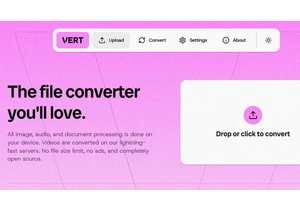A who’s who of musicians, actors, directors, and more have teamed up to sound the alarm as AI leaders including OpenAI and Google argue that they shouldn’t have to pay copyright holders for AI training material.
In an open letter, submitted to the White House Office of Science and Technology, more than 400 members of the entertainment community expressed concerns about the wish lists of AI companies for the U.S. AI Action Plan. Those recommendations, the letter warned, could severely damage the entertainment community, which supports more than 2.3 million jobs whose wages currently top $229 billion per year. The group urged the Trump administration to not sacrifice America’s leadership in the world of entertainment in the race to dominate artificial intelligence.
“We firmly believe that America’s global AI leadership must not come at the expense of our essential creative industries,” the group wrote. “America’s arts and entertainment industry … [provides] the foundation for American democratic influence and soft power abroad. But AI companies are asking to undermine this economic and cultural strength by weakening copyright protections for the films, television series, artworks, writing, music, and voices used to train AI models.”
Included among the prominent signatures on the letter were Paul McCartney, Cynthia Erivo, Cate Blanchett, Phoebe Waller-Bridge, Bette Midler, Cate Blanchett, Paul Simon, Ben Stiller, Aubrey Plaza, Ron Howard, Taika Waititi, Ayo Edebiri, Joseph Gordon-Levitt, Janelle Monáe, Rian Johnson, Paul Giamatti, Maggie Gylenhall, Alfonso Cuarón, Olivia Wilde, Judd Apatow, Chris Rock, and Mark Ruffalo.
The White House Office of Science and Technology Policy (OSTP) says the AI Action plan is meant to be “the first step in securing and advancing American AI dominance.” And AI companies had a comprehensive wish list, submitted during the comment period for the bill, which ended Saturday.
Among those was stronger export controls for things like chip exports as foreign competitors, such as DeepSeek, which continues to worry U.S. AI firms. Some developers also pushed for more funding for AI’s infrastructure and further government adoption of AI.
But it was comments about regulation of that AI training that caught Hollywood’s attention. OpenAI, in its submission to the OSTP, seemed to push for the right to train its large language models on copyrighted works without the permission of those copyright holders or any compensation.
“Our AI model training aligns with the core objectives of copyright and the fair use doctrine, using existing works to create something wholly new and different without eroding the commercial value of those existing works,” the company wrote. “Ultimately, access to more data from the widest possible range of sources will ensure more access to more powerful innovations that deliver even more knowledge.”
Google, meanwhile, discussed exceptions to copyright rules that “allow for the use of copyrighted, publicly available material for AI training without significantly impacting rightsholders and avoid often highly unpredictable, imbalanced, and lengthy negotiations with data holders during model development or scientific experimentation.”
Hollywood argued that the ramifications of those sorts of changes could impact far more than the entertainment industry, threatening the work of writers, publishers, photographers, scientists, and basically anyone who generates intellectual property on a computer today.
“This issue is not just about AI leadership or about economics and individual rights, but about America’s continued leadership in creating and owning valuable intellectual property in every field,” the Hollywood collective wrote. “It is clear that Google . . . and OpenAI . . . are arguing for a special government exemption so they can freely exploit America’s creative and knowledge industries, despite their substantial revenues and available funds.”
While OpenAI’s letter warns that should AI companies in China be given unfettered access to copyrighted data, America will lose the AI race, the entertainment community dismissed that theory, urging the government to leave today’s copyright laws unchanged.
“Access to America’s creative catalog of films, writing, video content, and music is not a matter of national security,” the group wrote. “[AI companies] do not require a government-mandated exemption from existing U.S. copyright law.”
Chcete-li přidat komentář, přihlaste se
Ostatní příspěvky v této skupině

You’d be forgiven for forgetting that there was a time when Microsoft Edge was basically the web browser that opened when you accidentally clicked a link that didn’t default to opening in Chrome o



Do you receive login security codes for your online accounts via text message? These are the six- or seven-digit numbers sent via SMS that you need to enter along with your password when trying to

We were supposed to be finished with files by now.
For years, tech companies (well, certain tech companies) tooted their horns about a future in which files didn’t matter. You d


